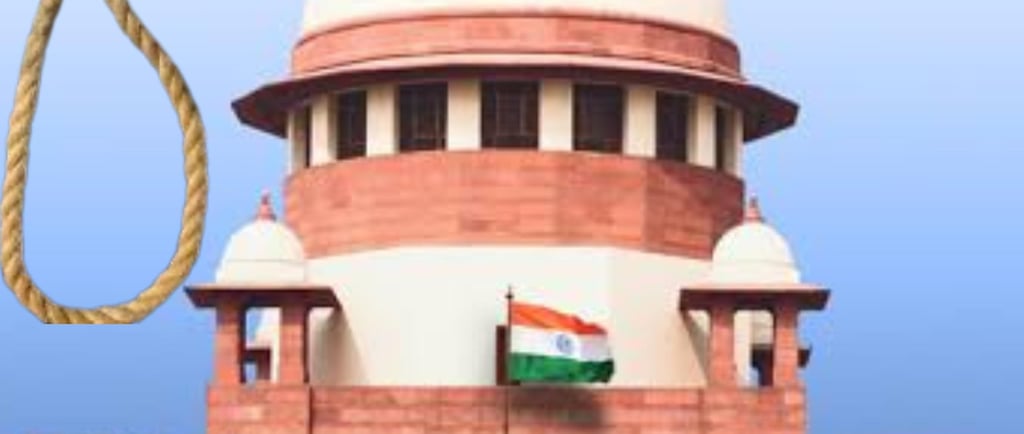Supreme Court’s Landmark Judgment: Delay in Death Penalty Execution Violates Fundamental Rights
the Supreme Court of India issued a critical judgment in the case involving the 2007 Pune rape and murder, addressing the repercussions of excessive delays in death penalty executions.
12/10/20242 min read


the Supreme Court of India issued a critical judgment in the case involving the 2007 Pune rape and murder, addressing the repercussions of excessive delays in death penalty executions. The court commuted the death sentences of two convicts, Purushottam Dasrath Borate and Pradeep Yashwant Kokade, to life imprisonment for 35 years, citing violations of Article 21 of the Indian Constitution, which guarantees the right to life and dignity.
Background of the Case
The case arose from a heinous crime in November 2007, where the convicts, employed as a cab driver and his associate, raped and murdered a young woman while she was on her way to work. Following their conviction in 2012, the death sentence was confirmed by the Bombay High Court and later upheld by the Supreme Court in 2015. However, substantial delays followed in deciding their mercy petitions and issuing execution warrants.
Delays in Execution
The judgment highlighted three major phases of delay:
1. Delay in Mercy Petition Processing: Mercy petitions submitted to the Governor and later to the President were met with administrative inefficiency, taking nearly two years for decisions.
2. Delay in Execution Warrants: After the rejection of mercy petitions in 2017, the process to issue execution warrants dragged on for nearly two years due to lapses by the Sessions Court and other authorities.
3. Cumulative Impact: The entire process spanned almost four years, during which the convicts endured immense mental anguish, described as a “sword of Damocles” hanging over them.
Legal Principles Highlighted
Justice Abhay S. Oka’s judgment revisited precedents set in landmark cases such as Triveniben v. State of Gujarat and Shatrughan Chauhan v. Union of India. The court reaffirmed that:
• Prolonged delays in death penalty cases have a dehumanizing effect, violating the fundamental rights guaranteed under Article 21.
• Delays caused by the executive or judiciary must be addressed to ensure procedural fairness, even in cases involving heinous crimes.
• The period of delay, while not subject to a fixed rule, must be evaluated in light of the circumstances, including the psychological impact on the convicts.
Observations and Rulings
1. Violation of Article 21: The court ruled that the unexplained delays in deciding mercy petitions and issuing execution warrants constituted a breach of the convicts’ right to life and dignity.
2. Guidelines for Future Cases: The judgment called for stringent procedural guidelines to expedite death penalty cases, including time-bound decisions on mercy petitions and proactive judicial oversight.
3. Balance of Rights: While acknowledging the gravity of the crime, the court emphasized that justice for victims must not override the constitutional rights of the accused.
Impact and Significance
This ruling has far-reaching implications for India’s criminal justice system. It underscores the need for administrative efficiency and judicial accountability in handling death penalty cases. By commuting the death sentences, the court reinforced the principle that delays in justice delivery not only harm the accused but also erode public faith in the system.
Victims’ and Society’s Perspective
While the judgment upholds constitutional values, it also raises questions about the rights of victims and their families. The court noted that while victims have a right to justice, this does not extend to enforcing capital punishment if it breaches constitutional safeguards.
Conclusion:The Supreme Court’s judgment is a landmark in reinforcing the balance between justice and constitutional rights. It serves as a reminder that while the law must be firm against crime, it must also uphold the values of fairness and dignity, ensuring that justice is neither delayed nor denied. This case will likely shape the discourse on the death penalty in India, pushing for reforms to address systemic inefficiencies and delays.
